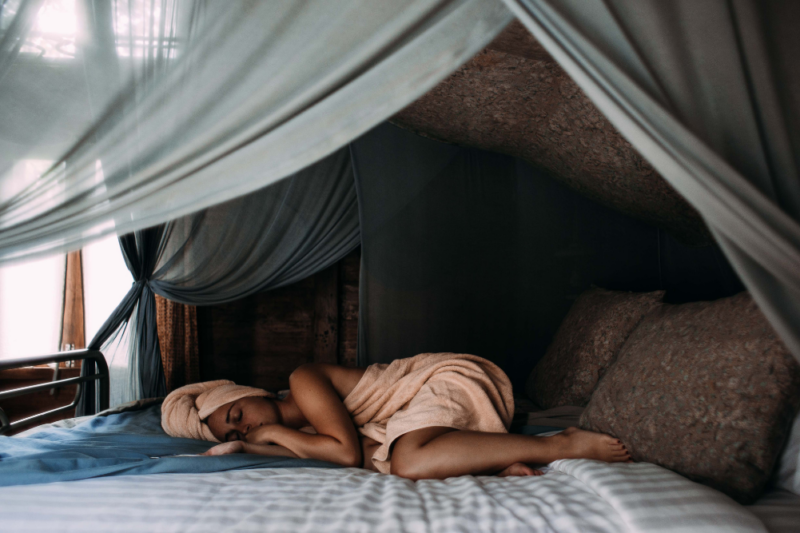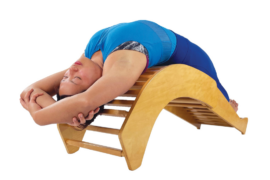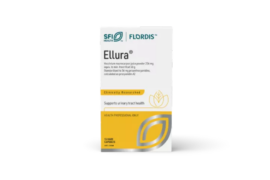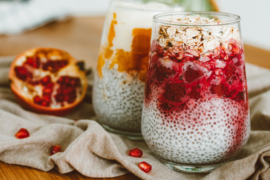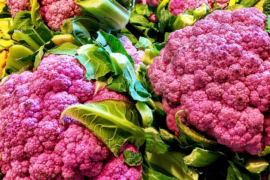A Natural Alternative to Sleeping Pills for Better Sleep and Health
Herbs with natural sedative properties offer an alternative to pharmaceutical sleeping pills and their common downsides: daytime drowsiness, memory problems, tolerance, withdrawal symptoms (including sleeplessness) and addiction. Some medications commonly prescribed for sleep can end up worsening insomnia and cause depression to boot. Adding to their potential problems is their ability to interact with other prescription meds and alcohol, which has led to a small number of deaths.
A large-scale 2012 study compared 10,000 people taking sleeping pills against 20,000 carefully matched controls. After the passage of two and a half years, the sleeping pill users were 4.6 times more likely to have passed away than the controls. They were also 30-40 per cent more likely to develop cancer and had an increased risk of fatal car accidents, falls, heart disease, strokes and infections. While it’s impossible to know the cause and effect or draw conclusions, it might be wise to err on the side of caution, particularly given sleeping pills might not be nearly as effective as we imagine them to be.
When researchers from Lincoln University, Harvard Medical School and the University of Connecticut in the US reviewed 13 clinical sleep trials comparing sleeping pills to placebo and inactive substances, they found the placebo was responsible
for about 50 per cent of the benefits.
An alternative, safer, more natural medicine (although admittedly not generally as powerful) are herbal sedatives and relaxants within plants. Milder and gentler on our bodies, herbs are not known to cause addiction issues and can be used long-term with few if any side effects. While they don’t work for everybody nor get to the underlying roots of sleeping problems, no discussion on sleep would be complete without these gentle sleep balms. In the following pages are some of the herbs with traditional use for sleep.
Need to know
When taking sedative herbs, be wary of interactions with other medications, drugs and alcohol. Sedative herbs may enhance the effects of these or interfere with medications. Avoid taking sedative herbs in conjunction with medications, sleeping pills and supplements such as melatonin with sedative properties.
How do herbs help us sleep?
- Like humans, plants produce substances to help them thrive or survive against attacks from micro-organisms, parasites, pests and competition from other species. Many of these compounds are also useful to human health.
- Some herbs contain plant chemicals that can reduce anxiety, soothe the nervous system and relax the muscles. This can help decrease the time it takes to get to sleep.
- Some herbs can also reduce physical pain, another impediment to sleep. A primary example is the opium poppy, which is the source of morphine, one of the strongest painkillers on earth.
- Some plants have direct sedative actions on the body. They primarily seem to work by increasing GABA, a sleep-promoting neurotransmitter.
Sedative herbs
Valerian Valeriana officinalis
Part of plant used: root
Need to know: valerian can also lower blood pressure.
Reputedly the most effective of the sedative herbs, valerian is equally known for its rank, bitter taste and smell – reminiscent of dirty socks. Along with the dried root version (taken as a tea), you can also purchase valerian as a capsule or tablet. For some, the tea is more effective; others prefer the capsule or tablet. Valerian has other helpful properties: it relieves muscle tension or spasm including menstrual pain and historically was used for epilepsy, headaches and hysteria. It’s particularly useful for sleeping problems that involve a racing mind, stress, anxiety, panic or muscular tension.
Kava kava Piper methysticum
Part of plant used: root
Need to know: in excessive doses, kava kava can have a narcotic effect, including causing dizziness and excessive daytime drowsiness. In the past, kava kava has been linked to liver issues thought to be due to solvents involved in extraction of the plant. Be sure to source high-quality products.
Kava kava is best known for its ability to promote a sense of relaxation and euphoria and induce sleep. Culturally important and popular in the Pacific Islands, this helpful herb is also analgesic and anaesthetic plus antiseptic to the urinary tract and bladder. Kava kava is particularly useful for sleeping problems involving stress, anxiety, restlessness, pain or bladder issues.
Passionflower Passiflora incarnata
Part of plant used: flower
Passionflower is a gentle sedative with antispasmodic actions. It’s useful for sleeping problems caused by anxiety, restlessness, stress, muscle cramps or spasm.
Hops Humulus lupulus
Part of plant used: strobiles (leafy, catkin flowers)
Need to know: hops can depress the nervous system. Avoid it if you’re feeling low.
Hops has sedative and antispasmodic properties. It’s especially useful for insomnia related to restlessness, irritability, stress, spasm and headache.
Skullcap Scutellaria lateriflora
Part of plant used: aerial parts
Need to know: don’t confuse skullcap with Baical skullcap which is a different plant from China.
Skullcap has sedative, antispasmodic and anticonvulsant properties. It’s also a nerve tonic, calming and nourishing the nervous system. It’s particularly useful in sleeping issues caused by muscle tension, restlessness, hiccups, anxiety, mild depression and over-excitement. Traditionally, it was used by the American Indians for a range of complaints, including epilepsy, rabies and convulsions.
California poppy Eschscholzia californica
Part of plant used: aerial parts
Safe and gentle, California poppy was historically used to soothe and help children sleep. The plant has mild sedative and analgesic properties, reduces anxiety and is also antispasmodic. California poppy has a traditional use as a sleep aid, especially if symptoms include aches, pains, colds, flu and fever.
Corydalis Corydalis ambigua
Part of plant used: root/rhizome
Better known in Traditional Chinese Medicine (as yanhusuo), Corydalis has analgesic, antispasmodic and sedative actions. Traditionally, it’s used for menstrual pain and headaches as well as insomnia. Its sedative and analgesic action is one to 10 per cent that of opium (the source of morphine).
Catnip Nepeta cataria
Part of plant used: aerial parts
Beloved by cats, Nepeta cataria has white flowers with purple spots. Along with being mildly sedative, it’s great at settling the tummy and reducing flatulence, thus great for sleeping problems that involve digestive issues.
